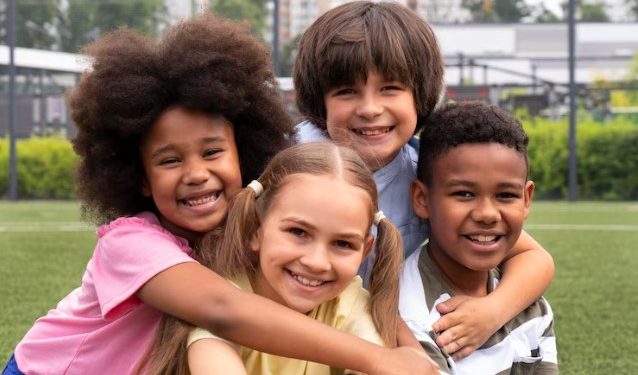Mindfulness is a practice that involves focusing one’s attention on the present moment, while calmly acknowledging and accepting one’s feelings, thoughts, and bodily sensations. While often associated with stress reduction and adult mental health, mindfulness can also be extremely beneficial for children. Mindfulness can be used to improve child happiness as well help protect children’s mental health. In today’s fast-paced and technology-driven world, children are faced with numerous distractions and pressures. Incorporating mindfulness into their daily lives can help children develop important skills and cope with the challenges they may encounter. Here are some ways children can benefit from mindfulness:
1. Improved Concentration: Mindfulness exercises encourage children to pay attention to their thoughts, emotions, and surroundings. By practicing mindfulness, children can enhance their ability to concentrate and focus on tasks at hand. This can be particularly beneficial for academic performance, as it helps children stay present and engaged in their studies.
2. Emotional Regulation: Children often struggle with managing their emotions, which can lead to tantrums, outbursts, and difficulty in social situations. Mindfulness teaches children to observe their emotions without judgment, allowing them to gain a better understanding of their feelings. This self-awareness helps children regulate their emotions and respond to challenging situations more calmly and effectively.
3. Reduced Stress and Anxiety: Just like adults, children can experience stress and anxiety. Mindfulness techniques, such as deep breathing and body scans, can help children relax and reduce feelings of stress. By practicing mindfulness regularly, children develop a sense of calmness and learn effective coping mechanisms to deal with anxious thoughts and feelings.
4. Improved Self-Esteem: Mindfulness promotes self-acceptance and self-compassion. By teaching children to be non-judgmental towards themselves and others, mindfulness helps build a positive self-image. Children who practice mindfulness are more likely to have higher self-esteem and develop a healthier relationship with themselves.
5. Enhanced Social Skills: Mindfulness encourages empathy and compassion towards others. By teaching children to be present and attentive, mindfulness helps them develop better listening skills and the ability to understand others’ perspectives. This can lead to improved communication, conflict resolution, and overall better relationships with peers.
So, how can children incorporate mindfulness into their lives? Here are a few simple practices:
– Mindful Breathing: Encourage children to take slow, deep breaths and focus their attention on their breath. This helps them stay present and calm.
– Mindful Eating: Teach children to savor their food by paying attention to its taste, texture, and smell. This practice promotes mindful eating habits and gratitude.
– Guided Imagery: Use guided imagery exercises to help children visualize positive and calming scenarios, such as a peaceful beach or a serene forest.
– Mindful Movement: Engage children in activities like yoga or tai chi, which promote mindfulness through gentle movements and body awareness.
In conclusion, mindfulness can have numerous benefits for children. By incorporating mindfulness practices into their daily lives, children can improve their concentration, emotional regulation, and overall well-being. As parents and educators, it is important to introduce and encourage mindfulness in children, helping them develop lifelong skills for a happier and more balanced life.















